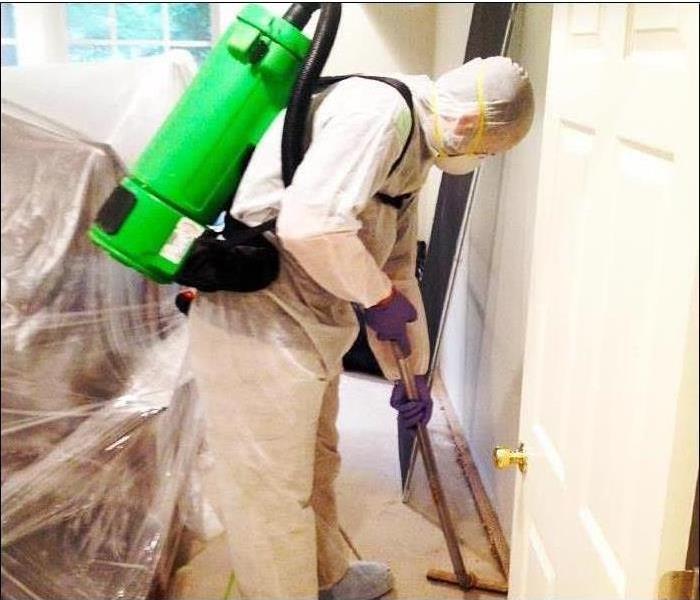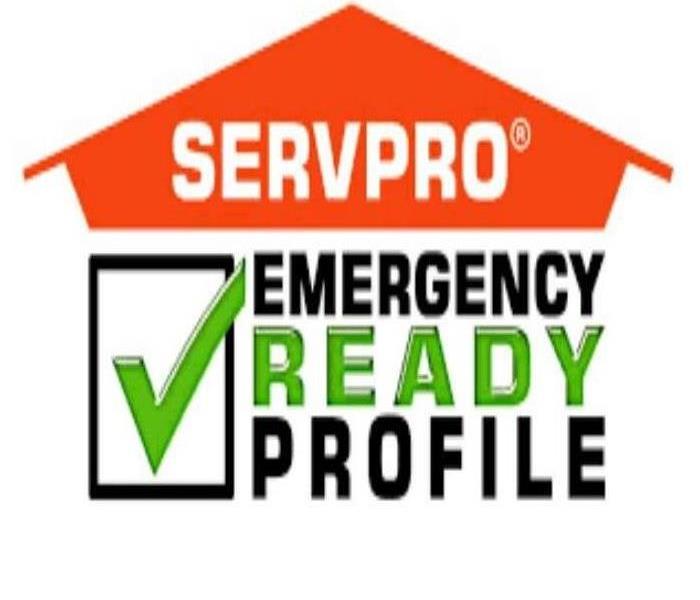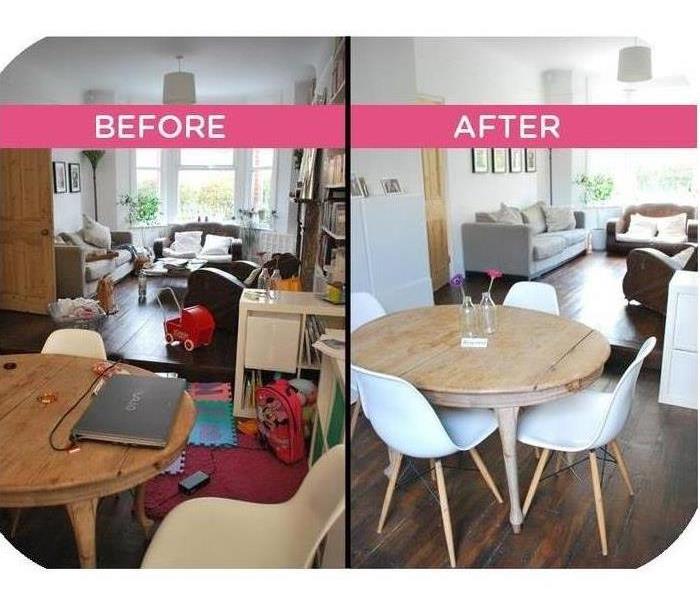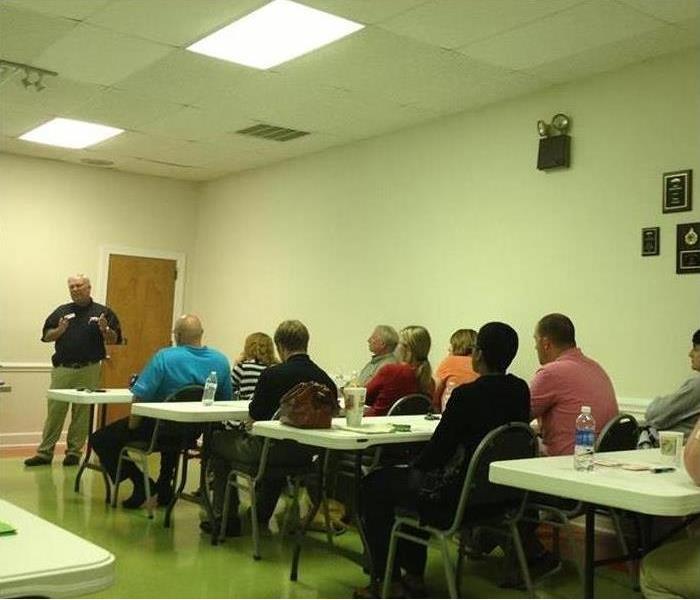Recent Why SERVPRO Posts
Why choose us?
6/14/2023 (Permalink)
Here at SERVPRO of Lenoir, Duplin and Jones Counties we often get the question of Why SERVPRO? What is it that SERVPRO can do differently than all the other cleaning and restoration companies out there? The answer to those questions always start the same way, with the list of all the training and certifications held by SERVPRO employees, the systematic process that are used to manage different projects, and the support provided by corporate and the SERVPRO network. While those are all valuable assets, what truly sets SERVPRO of Lenoir, Duplin, and Jones Counties apart is the people. Between the office manager, production manager and our production team, they average 18 years of experience just with SERVPRO. This amount of experience provides them with all of the tools and knowledge necessary to handle projects of any type or size.
Whether it's routine carpet cleaning or a large commercial water loss or fire damage, the crew at SERVPRO Lenoir, Duplin and Jones Counties has the experience to make it "Like it never even happened."
What you need to know about sewage backups
4/4/2022 (Permalink)
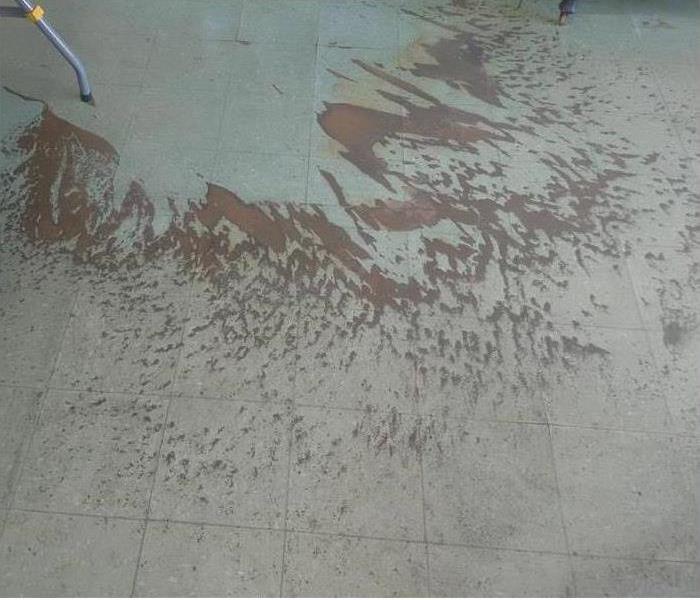 Did you know that a sewage back up is considered a biohazard?
Did you know that a sewage back up is considered a biohazard?
It usually begins with a gurgling... or a slow drain. If you notice either, your number may be up. When confined to a single drain, you probably don't have anything to worry about - break out the plunger or pull out that hair clump. But if the tub is backing up when the toilet's flushed, or the kitchen sink appears to drain straight to your basement, you could have a major problem. The sewer drain could be backing into your building drain.
Did you know...
- The most common causes of sewer backups are tree roots clogging pipes, FOG (Fats, Oils, and Grease) going down the drain, and connecting things like french drains, sump pump discharges, and other flood control systems to the sanitary sewer system (which is why such connections are usually not permitted). Blockages in main sewer lines can also be caused by soil settlement over time or collapsed pipes.
- "Flushable" wipes aren't so flushable: utilities around the country have found them to be the chief culprit in many a clogged main sewer drain. Trash them!
- Municipalities with combined sewage and storm water systems are at a higher risk of being inundated by severe rainfall, resulting in backups.
Sewage backups can put you in a messy situation but we can take care it quickly! If you suffer a sewage back up, call 252-208-7888 for a quick response and we will make it "Like it never even happened."
What is in your ducts?
4/4/2022 (Permalink)
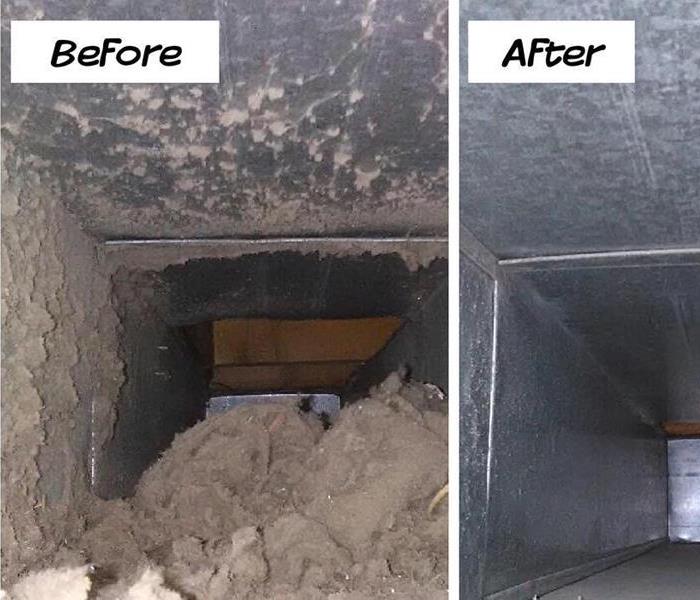 How is your indoor air quality?
How is your indoor air quality?
Have you ever stopped to consider the air that circulates inside your home? It travels from your furnace, through your ductwork, into your home’s air, and back through the cold air return system. On its journey, it accumulates all kinds of nasty stuff: dust, hair, allergens, pet dander, mold spores, you name it. If it’s airborne, it will eventually collect in your ductwork.
From there, it will get blown out into your home, making a dusty, dirty mess of your indoor air (you know, the stuff you breathe). The Benefits of Professional Air Duct Cleaning Purify Your Indoor Air. Getting rid of all the nasty particulate in your duct-work will help clean up the air inside your home.
SERVPRO of Lenoir, Duplin & Jones has a comprehensive cleaning system that ensures every square inch of your duct-work is thoroughly cleaned, helping you breathe easy in your own home. Reduce Allergies. While the seasons determine the severity of most allergy issues, homes with congested ventilation can cause allergic reactions year round. Contaminants such as dust, mold spores, pet dander and dirt accumulate in your air ducts over time and are blown around into various rooms in your house, preventing the allergy sufferers in your home from ever experiencing total relief. Less Dusting. Getting rid of the dust in your indoor air means less dust on your furniture/pictures/counters/everywhere!
Who wouldn’t want to cut down on the tiresome chore of dusting? Improve Furnace Efficiency. Removing the dust, dirt, and debris from your HVAC system will help your furnace run better! Instead of heating the mess inside the vents, the heat generated by the furnace is more easily transferred through the ducts into your home’s air. As any homeowner will tell you, running a furnace is expensive! Don’t make your furnace work any harder than it needs to.
CALL US AT 252-208-7888 and get cleaner, healthier indoor air!
Getting children prepared for a natural disaster
8/2/2021 (Permalink)
Talk about emergency preparation with your family so that everyone knows what to do. Discussing ahead of time helps reduce fear, particularly for younger children.
Involve your entire family in preparation activities, such as assembling a emergency readiness kit. Children can feel reassured knowing there’s a plan in place.
How to Guide Your Children During a Disaster
Your Child’s Response May Be Shaped By Yours
Feelings of fear are healthy and natural, but in a disaster, your children will be looking to you for clues on how to act:
- If you show alarm, your child may become more scared, seeing your fear as proof that the danger is real.
- If you seem overcome with loss, your child may feel their losses more strongly.
- If you are able to demonstrate that you feel calm and in control, your child may feel more confident and better able to cope.
A Child Who Feels Afraid Is Afraid
Your child may experience the emergency as being bigger than it actually is. Children's fears can be increased by their imagination, and you should take these feelings seriously. Your words and actions can provide reassurance; be sure to present a realistic picture that is both honest and manageable.
How to Help Your Child After a Disaster
What to Expect
Children depend on familiar routines: wake up, eat breakfast, go to school, play with friends. When an emergency interrupts this routine, they may become anxious, confused, or frightened. These feelings may be expressed in a variety of ways: from clinginess to withdrawal; increased shyness to aggressiveness. Your child may return to previously outgrown behaviors such as thumb-sucking or carrying a cuddly toy.
What to Do
When the danger has passed, concentrate on your child's emotional needs by asking what's on his or her mind. Having children participate in your family's recovery activities will help them feel that life will soon return to "normal."
During their recovery, prevent young children from viewing television news reports of the event. The images can be very upsetting, particularly if the child is too young to realize they are watching repeated footage and not a new emergency.
Can mold return after remediation?
8/31/2020 (Permalink)
To be blunt, yes! After obtaining mold remediation services from a certified specialist, along with determining the actual cause of the infestation, the mold problems are usually taken care of. Despite that, it is still possible for mold to return at a later time. The reason usually comes from an underlying moisture problem.
So, why does mold come back after being treated? Mold is a fungus. It contains living organisms that, in order to live, have to breakdown moist, rotting organic matter to survive. Without fungi and other decomposing organisms, dead debris from scraps, leaves, etc. would just simply continue to pile up. In wooded areas, it’s a good thing when mold breaks down wet, rotting wood. In our homes and buildings however, it’s an extremely bad thing.
Mold reproduces by way of microscopic spores, which are almost always present in the air we breathe on a daily basis. Even if your indoor air quality is excellent there are still trace amounts of mold spores present. It’s all but unpreventable. In small masses, fungal spores don’t generally cause any harmful health effects. The last mentioned tends to occur when large amounts of mold are growing nearby, releasing large quantities of spores into the air.
If there’s moisture, especially wet and rotting wood, carpeting, or drywall, it creates the right habitat for molds to begin to grow. Moisture is almost always at the root of mold infiltrations. If the underlying moisture problem isn’t resolved properly during the mold remediation process, the mold problem could very likely recur in the near future.
We here at SERVPRO of Lenoir, Duplin & Jones Counties use highly trained technicians to try and make sure this isn’t the situation at your home or building.
Call us at (252)208-7888 for your mold infestation problems.
Sewage backups are no laughing matter
7/19/2020 (Permalink)
Indoor floods and plumbing leaks are difficult disasters to handle because they can result in extensive water damage. If the flooding in your home contains sewage or is caused by a sewer backup, the situation will be much more dangerous. Sewage backup contains microorganisms, bacteria, and human waste and those that come into contact with sewage water are at risk for disease or infection. The mess caused by a sewage backup can only be cleaned up by a trained water damage specialist like SERVPRO of Lenoir, Duplin & Jones Counties. Because sewer backups are damaging and hazardous to your health, it is best to know the common signs and causes of a sewage backup so you can prevent them from happening.
Health Effects of Sewage Backups
Flooding in your basement may contain sewage.
The health effects from exposure to sewage can range from illness to more serious diseases and even death. Sewage contamination is responsible for around 2 million cases of illness per year according to the National Resources Defense Council. Sewage water may contain plenty of contaminants and hazardous materials including bacteria, viruses, pesticides, fungus, microorganisms, and others. The following are the most common health conditions caused by bacteria in sewage:
Sewage backups are typically the result of a clogged sewer line which is nearly impossible to spot. However, there are three warning signs of a clogged sewer line that you should look for in your home:
- Backups in several drains: If your sinks, bathtubs, and toilets are experiencing backups and trouble draining, there could be a problem in the sewer line.
- Water backups in strange places: If using one of your plumbing fixtures like the sink or toilet causes backups in a nearby plumbing fixture, this could mean that the water has nowhere to escape.
- Backup in the sewer cleanout: The sewer cleanout is usually a white or black pipe that extends out of the side of your home and it allows access to the sewer line. If the sewer cleanout is full of water, there is a good chance of a sewer line clog.
If a clogged sewer line is the main cause of a sewage backup, then what causes the sewer line to become clogged? The following are the most common causes:
- Blockage from root infiltration: The roots from trees and bushes can infiltrate and damage sewer lines as they extend out in the soil looking for moisture. This infiltration can easily cause a blockage.
- Structural defects: If there is a structural issue with your foundation that affects the sewer line, your sewer line is at risk for a blockage.
- Flushing things down the toilet: Do not flush anything that isn’t supposed to go in the toilet to prevent a clog.
- Blockage in the city sanitary main: Sometimes the city sanitary main line can get clogged and cause backups in nearby homes and buildings through the floor drains.
- Wet weather and flooding in or near your home.
- Broken, blocked, or leaking pipes.
Sewage backups present a major problem in your home because of the potential damage and negative health effects but by recognizing the warning signs and taking preventive actions, you can prevent a sewer backup. If you do experience a sewage backup or in-home flooding that may contain sewage, call us at 252-208-7888 right away. Our professionals are highly trained to deal with sewage water and ensure that it is removed safely.
Get your FREE Emergency Ready Profile!
9/12/2019 (Permalink)
The Emergency Ready Profile that we offer at SERVPRO of Lenoir, Duplin & Jones Counties, also known as the ERP (you may have heard us talk about this). Is a FREE service we provide. We will come into your residence or commercial building and provide a file that has all of your emergency contact information including locations of the gas/water shut offs. This profile takes us about an hour to complete including detailed photographs of water shut offs, gas mains, building accessibility and with just a few simple questions we need you to answer including, building contact, maintenance personnel, plumber, HVAC, phone company, etc. This profile is also accessible through your cell phone using a mobile application. IT'S FREE so why not take this opportunity and be ready for any disaster?
It is estimated that up to 50% of businesses that close due to a disaster, such as fire and flood never reopen! Of the businesses that survive, the overwhelming majority of them had a preparedness plan in place. Are you ready for whatever happens? Preparation is a key component for making it through any size disaster, whether it's a small water leak, a large fire, or an area flood. The best time to plan for such events is not when the event happens, but well before it happens. The SERVPRO® Emergency READY Profile serves as a quick reference of important building and contact information or can be an ideal supplement to any well-designed emergency preparedness or existing contingency program. Rather than simply reacting to disaster situations, most prefer proactive measures to establish a relationship with a restoration services company. By working with SERVPRO® of Lenoir, Duplin & Jones Counties to develop your personalized Emergency READY Profile your business will receive the benefit of over 40 years of experience in reducing the impact of any natural or man-made disaster.
SERVPRO® is a leader in water and fire damage response and can help you quickly get your property back in working order. Call us today to get it started 252-208-7888
Helpful tips to make your home safer
5/25/2019 (Permalink)
Accidents that happen around people's houses lead to several trips to the emergency room or even death each year. Most injuries at home are preventable when using proper caution.
SERVPRO of Lenoir, Duplin and Jones Counties would like for you to improve safety inside and outside of your home. Here are some tips to make this a priority.
- Improve lighting One of the easiest ways to reduce falls is to improve lighting around the home. Make sure light fixtures are using the highest watt light bulb allowed. Light fixtures are even more important in the fall and winter, when there is not as much natural light. Also, make sure there is enough lighting outdoors by the front door, over the garage, and any other place that is used as a passageway.
- Eliminate slick surfaces Attach nonslip rubber backings on throw rugs and runners. Using bath rugs can reduce slipping on wet surfaces in the bathroom along with nonslip mats used inside bathtubs and showers.
- Declutter all spaces Remove unnecessary furniture and items from rooms to free up more space to walk around. Make sure there are no obstructions near entryways, walkways, stairways and doors.
- Use assistive devices Handrails, grab bars, and nonslip stair treads can make a home safer for people of all ages and physical abilities. Organize closets and cabinets so frequently used items are with easy reach. Step stools can also reduce the risk of injury while reaching for items on high shelves.
SERVPRO of Lenoir, Duplin and Jones Counties hopes that by using these tips, it will help reduce the risk of falling around the home and are very worthwhile home improvement projects most home owners can do themselves.
Continuing Education classes
5/24/2019 (Permalink)
One of the goals at SERVPRO of Lenoir, Duplin and Jones Counties is to help guarantee that our students, as well as ourselves, are all winners at the end of each course.
Our CE Team at Lenoir, Duplin and Jones County continues to strive to offer FREE continuing education classes for insurance agents, insurance adjusters, and real estate agents.
We ask our students and try our best to teach courses that are most interesting to them that also meet their needed continuing education requirements.
For licensees requiring CE, we are continuing to search for new and interesting courses for them to attend, getting the CE credits as promised for attending the courses, and getting their required CE credits in on time for their license renewals.
Mold? We can handle that!
4/15/2019 (Permalink)
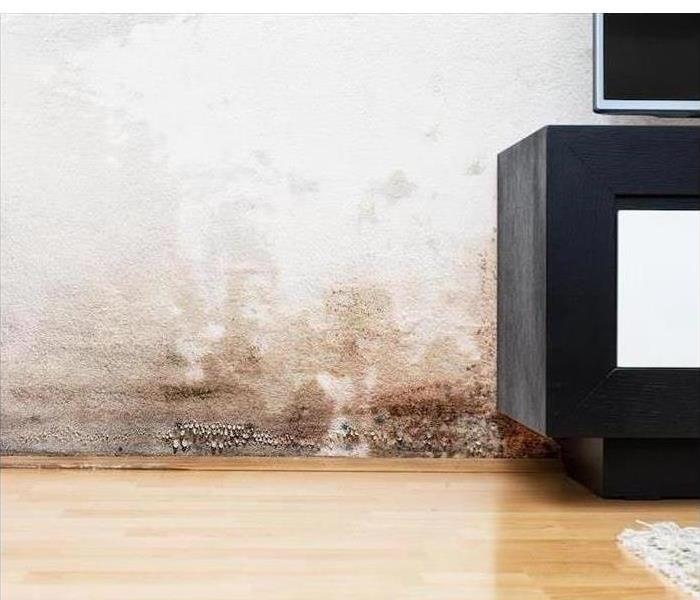 Mold can be a tricky thing but handling it the right way is key
Mold can be a tricky thing but handling it the right way is key
What happens when a mold remediation company, like SERVPRO of Lenoir, Duplin & Jones Counties, shows up at your house to get rid of mold?
Prior to SERVPRO arriving at your house, try and clear out any access items that may be in the way of the remediation zone. Place house pets either in another room or out in the backyard. It helps to move any vehicles from the driveway or garage, and clear a wide path for the technicians to access your residence from the outside all the way to the mold area.
When SERVPRO of Lenoir, Duplin & Jones Counties arrive, they will park as near as possible to the doorway, lay down sheets of plastic, and run hoses through the house to the mold area. If the mold area is accessible from the outside, as in a crawl space, that makes it a lot better. SERVPRO will take care to keep your house clean while they do their work.
Our technicians will then fully suit up for action with head-to-toe white suits, booties, respirators, and goggles. This does not necessarily mean that our technicians will be removing toxic mold. This is common practice for any mold job they are dealing with.
First, a technician will spray the mold area with biocide. Biocide is an EPA-approved liquid which kills mold. You as a homeowner need to note that bleach is not approved by the EPA for killing mold. This part of the remediation process doesn’t take that long.
After the technicians leave, the biocide starts working to kill the mold spores. The next day when the technicians return, they spray the mold area with an encapsulate in order to prevent any mold from growing or spreading.
A day later, SERVPRO of Lenoir, Duplin & Jones Counties returns to spray the area with a type of whitewash paint that encapsulates any remaining mold spores. An area well beyond the moldy area should also be sprayed to ensure that no more mold grows.
Mold: Don’t Take the Easy Route
9/5/2018 (Permalink)
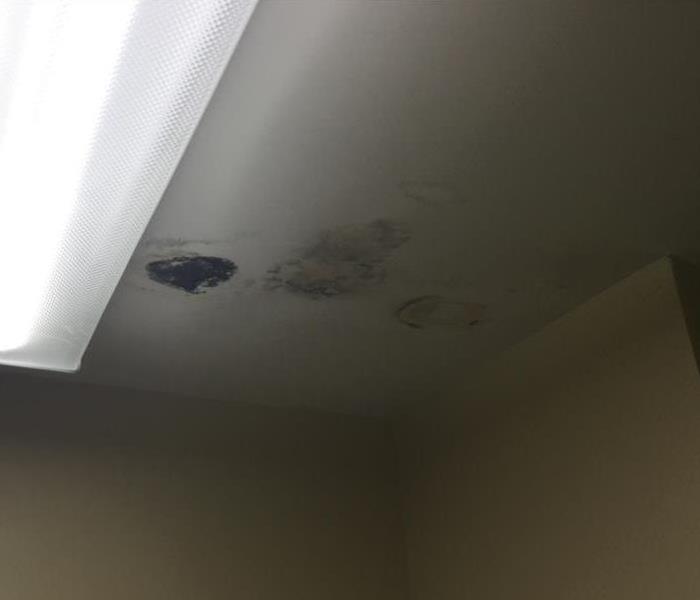 This is an example of how mold can return if it is just wiped down and painted over.
This is an example of how mold can return if it is just wiped down and painted over.
Mold is unattractive, and remediation can be expensive and take up a lot of time. It is because of these reasons that a lot of homeowners and property managers choose to paint over mold. But painting over mold is a bad idea for many reasons. Paint does not kill mold, and it will not stop the source of the mold. Mold will continue to grow under the paint, and you will see apparent signs of mold again. The surface mold that you see on your walls or ceilings is likely only a small portion of the mold problem. The mold may be deep into your walls. Your best bet is to at least perform a professional mold inspection to ensure the mold is identified and the source of the leak is discovered. Once you know the extent of the damage and the origin of moisture has been repaired, you can evaluate your course of action for appropriate mold remediation.
Mold is sometimes called a silent killer. It could impact your health and could cause permanent damage, including death. From itchy skin and headaches to serious respiratory and mental issues, mold could quickly take its toll on your body. The very young and very old are even more vulnerable. You often don’t even know that your health is being affected until the damage has already been done. When it comes to mold in your home or property, take the proper steps to get rid of it. Do not settle on painting over the mold. SERVPRO of Lenoir, Duplin & Jones Counties cares about people’s health and has trained and certified employees that will properly solve your mold issues in a timely healthy manner.
Call SERVPRO of Lenoir, Duplin & Jones Counties at (252)208-7888 for your home or business mold assessment.



 24/7 Emergency Service
24/7 Emergency Service


